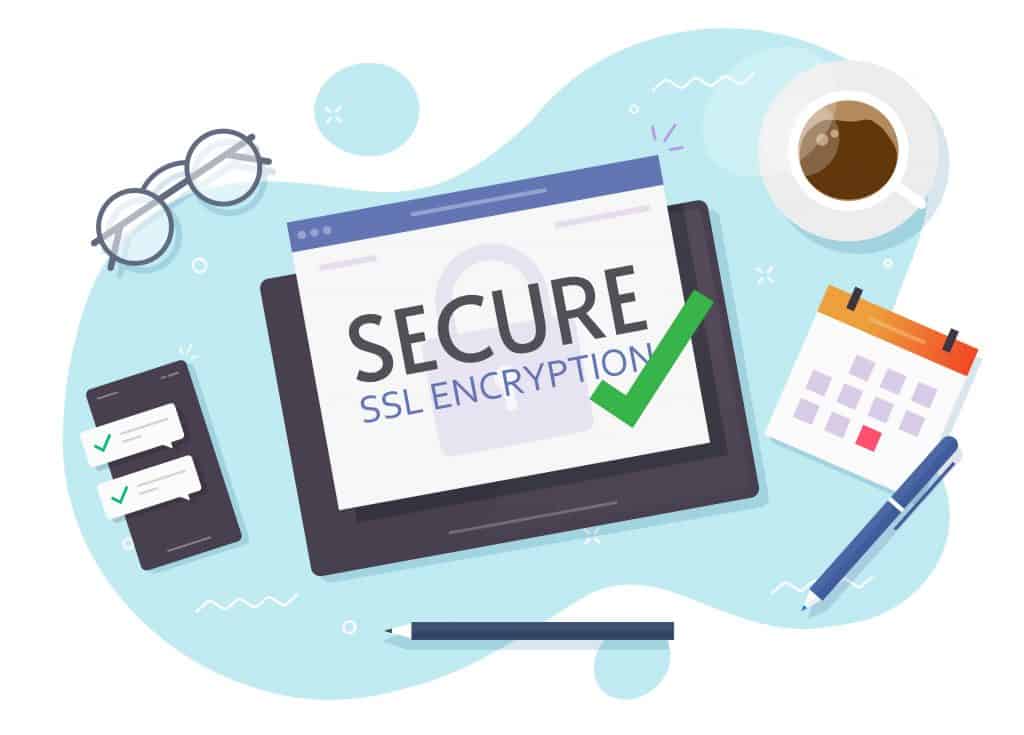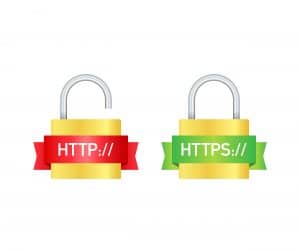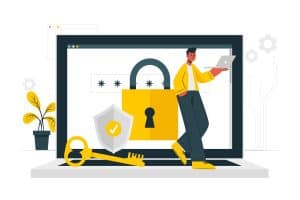
Cybercrime will cost the world in excess of $6 trillion annually in 2021 – that's a 100% increase from 2015! This alone is a great reason for needing a secure/SSL website.
Generally known as SSL or Secure Socket Layer, SSL is designed to make your Internet connection secure and to keep the confidential information you enter on a website safe. Installing an SSL certificate establishes an encrypted connection between the browser and the website.
You can say that the website is secure when the padlock is displayed in the address bar (https://domain.com) or insecure (http://domain.com). An SSL certificate is required when you ask a user to leave their details, such as a web store, when logging in. There are many benefits to SSL certification even if your website does not collect confidential information.
Not all e-commerce websites require an SSL certificate. If your only payment is through PayPal, then there is a possibility for visitors to be automatically forwarded to the PayPal page where secure payment takes place.
However, if you do not want to refer customers to other websites, and you want to collect payment information, then you will need an SSL certificate.

There are three types of certificate verification available for purchase. These include: Domain of validity (DV); Organization Verification (OV) and Extended Validation (EV).
The most common type of SSL certificate is a domain of validity (DV), which will suffice for most websites. As of August 2014, Google has announced that a website that has an SSL certificate installed will be ranked better in search. Improving search and better ranked pages, directly contributes to the amount of traffic to your website, and thus to potential audiences / customers.
A customer who knows that their information is secure and protected always prefers to return to the website.
43% of cyber-crimes are against small businesses.
Not directly, but as the main search engine, they can adjust the ranking in the search. Google Chrome (holding majority of market share) will display a "not secure" message in the URL to notify users when they start entering data. Google has also announced that it could eventually change the padlock to be red, which will lead to better expression. It is also likely that other browsers will follow Chrome.
Note that the link name differs from the destination it displays. Open the same link in several web browsers (Chrome, Firefox, Edge, IE). In addition to displaying the green padlock, Chrome further highlights the security of the website with "Safe".

Enable multi-factor authentication.
Look for EV certificates instead of DV certificates.
Fake, fraudulent, or fake websites are designed to trick you into giving up valuable user data and are generally designed so that those who are, say, “less careful” will fall right into the traps set by those sites and their shadowy designers.
What are the primary goals for these kinds of sites? Anybody persuading enough to fall for them.
What information is taken utilizing fraud sites? Anything you can consider, however, these sites commonly center around taking data that permits them to bring in cash, either quickly or in the long tun. Therefore, the sort of information taken, or traps set ordinarily center around:
As scammers become more modern in their deceives, it is periodically hard to decide when a site could be a trick or a channel for false material planned to take your data.
It is possible to put in place more technology to defend your website, but you must remember that the vast majority of cyber security breaches are due to human error.
1. Choose a secured web hosting
2. Select the right content management system
3. Adjust your default CMS settings
4. Enable different access levels
5. Manage add-ons and plugins
6. Update your software
7. Come up with secure passwords 
8. Use HTTPS and SSL
9. Set up automatic (offsite) backups
10. Keep your customer information safe
11. Restrict file uploads
12. Secure your personal computer
13. Use tools to monitor your security (Virusdie, All in one WP firewall & security, GOTMLS, ....)
14. Apply a Web Application Firewall (WAF)
15. Implement an Intrusion Detection System on your website (e.g. WP Activity Log plugin)
Surprisingly, that is not expensive. You can provide an SSL certificate through Let us Encrypt for free.
An SSL certificate is a guarantee to website users that the site they are coming to is secure. It is also recognized by Google, which will additionally reward you and help you improve your ranking a little more.
You cannot talk about digital marketing and websites today without talking about privacy and security — and you should not!
Almost 33% of all websites have inadequate security, and you cannot afford to let yours be one of them!